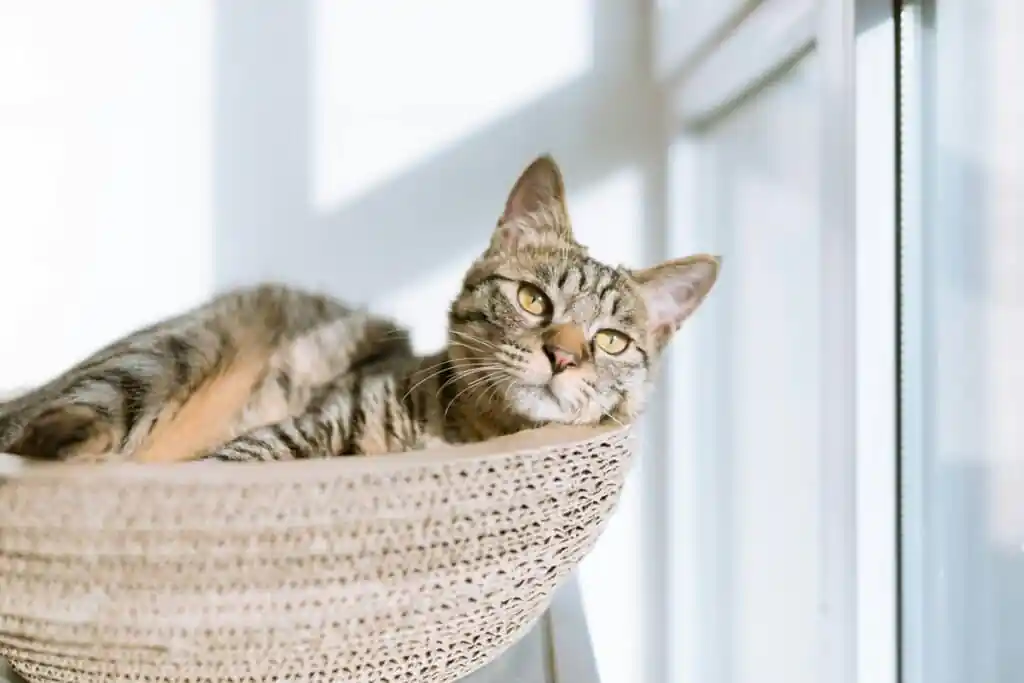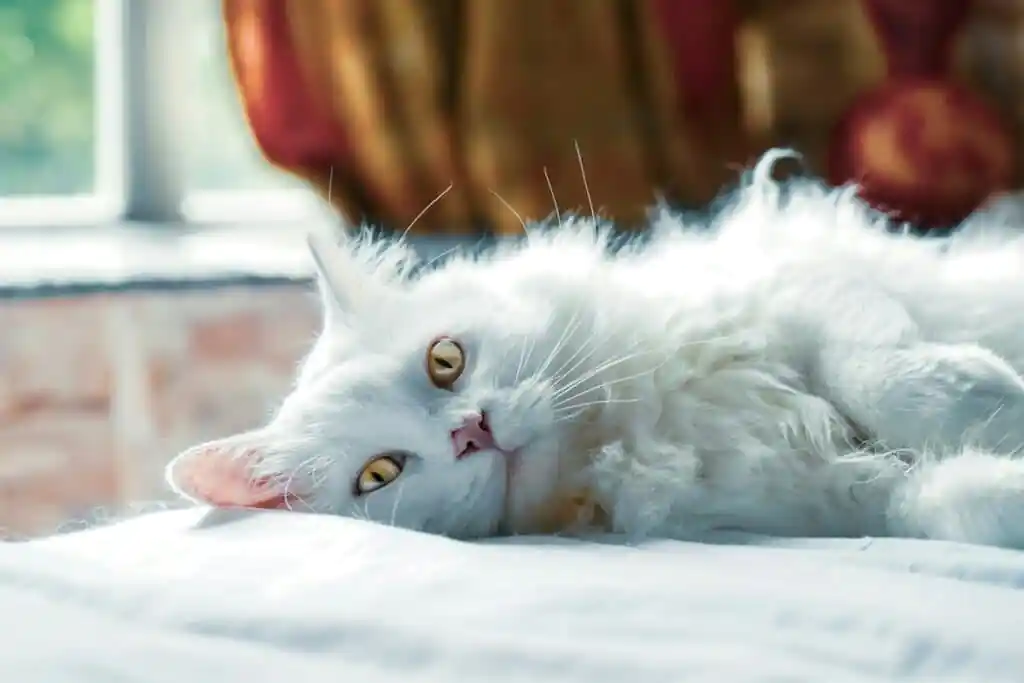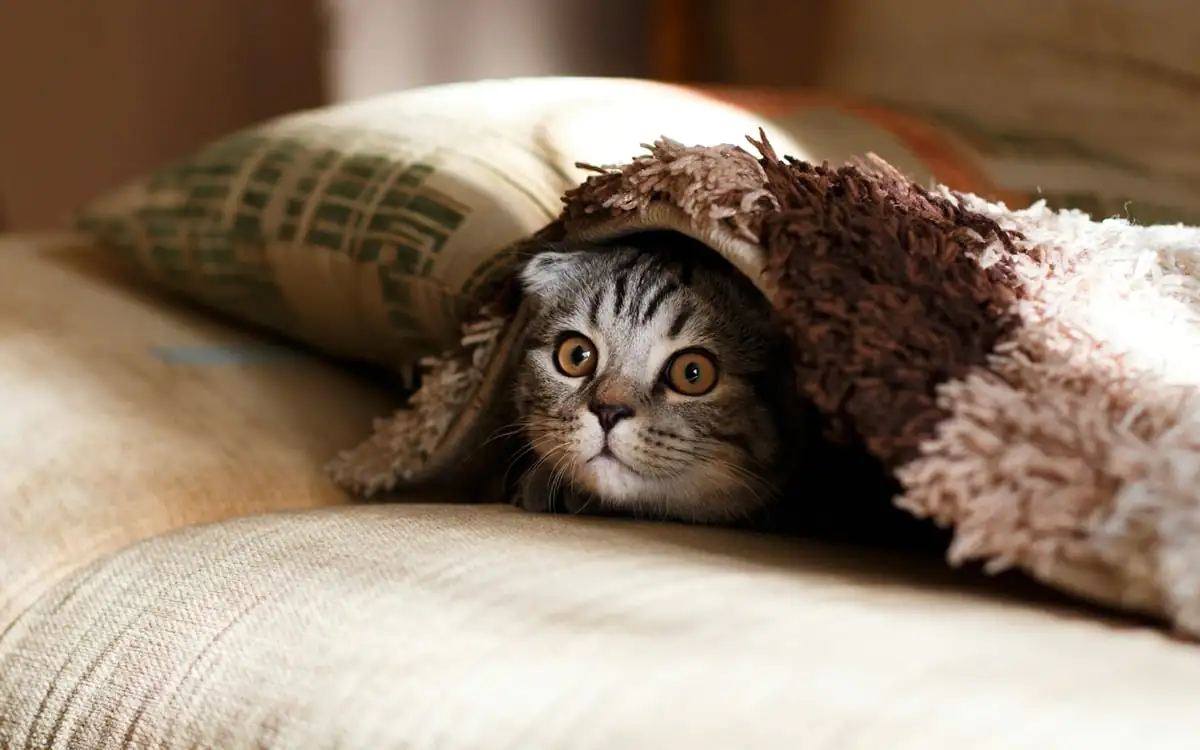Table of Contents
When planning a getaway, the thought of leaving your cat at home alone can be concerning. Cats are known for their independence, but they do require care and companionship. While some may handle solitude well for a day or two, leaving them alone for an extended period could lead to stress and health issues.
Fortunately, there are many boarding facilities that cater specifically to cats on vacation. These facilities welcome cats warmly, providing a secure and engaging environment.
Not all cats adapt well to new surroundings. Some find it less stressful to be alone on vacation in their own home. In such cases, in-home care or a trusted person stopping by can ensure your cat’s needs are met. Whether you choose home care or boarding, the key is to guarantee your cat enjoys the care and attention they deserve while you’re away.
Assessing the Duration: How Long Is Too Long?
Identifying the maximum time you can leave your cat alone is crucial for their well-being.
Leaving Cats Alone
As a general rule, cats can be left alone for up to 24 hours with access to food, water, and a clean litter box. Beyond a day, you should arrange for someone to check in on your cat to ensure their needs are met and to offer social interaction.
Factors Affecting How Long Cats Can Stay Alone
Several factors influence how long your cat can be left alone, including their health, age, and personality.
Age and Health Factors
Younger, more active cats may become bored and destructive if left alone for too long. Older cats may need more frequent medical attention or help accessing their litter boxes. Consider your cat’s health needs and whether they require medication or special care, which can reduce their time alone.
Behavioral Needs and Socialization
Like people, cats have varied social needs. Some cats crave constant companionship and may become anxious or depressed if left alone for too long. Others may value solitude but still need regular playtime and interaction to stay healthy and happy. Understanding your cat’s personality will help you gauge the right balance of care and alone time.
Access to Food, Water, and a Clean Litter Box
When leaving your cat home alone, ensure they have access to fresh water and their preferred food. Dry food can be left out, but wet food should not be left out too long due to the risk of spoilage. An automatic pet feeder can help manage mealtimes. Ensure access to clean litter boxes to avoid stress and health issues.
Care Options for Your Cat

Explore care options that align with your cat’s preferences and needs.
Choosing In-Home Cat Sitters
In-home sitters can give your cat one-on-one playtime and cuddles, reducing stress in their own space. Whether it’s a friend, family member, or pet sitter, someone familiar can clean the litter box and offer the attention your cat needs.
Professional cat sitters can provide daily updates, giving you peace of mind about your cat’s well-being while you’re away. Leave the sitter a care guide to ensure your cat is familiar and comfortable with the sitter, and discuss acceptable stress levels for your pet.
The Comforts of Familiar Surroundings
Keeping your furry friend at home can minimize their anxiety. They can sleep in their favorite spot, follow their routine, play with their toys, and enjoy familiar smells and sounds. This provides security and normalcy, making your time away less distressing for them.
Preparing for a Sitter’s Stay
Prepare for a sitter by cat-proofing your home, keeping dangerous items out of reach, and creating retreat spaces for your cat if they need solitude. Leave detailed instructions about feeding, litter box, and any special care or behavioral quirks. Provide emergency contacts and vet information.
Pros and Cons of Friends or Family Care
Entrusting your cat to friends or family has benefits and drawbacks.
Trust and Personal Bonds
When friends or family look after your cat, trust and personal bonds are significant. Your cat may already have a relationship with these individuals, easing your absence stress. You can feel more confident leaving your cat with someone you know and trust.
Potential Disadvantages and Stress Factors
Friends or family may not always be available or experienced to care for a pet, overlooking specific needs or signs of stress or illness. It’s important to ensure your cat will receive the attentive and knowledgeable care they deserve.
Professional Boarding Facilities: A Safe Refuge?
Professional boarding is a reliable option for your cat’s care when you’re away.
What to Look for in a Quality Kennel
When choosing a cat boarding facility, prioritize cleanliness. Look for well-ventilated, odor-free spaces with comfortable sleeping areas. Observe the staff’s interaction with the cats; they should be gentle and attentive.
Verify the feeding schedule matches your cat’s routine at home. Ensure security measures for your cat’s safety. Consider staff training and facility emergency protocols.
The Advantages of Professional Cat Boarding
Choosing a professional boarding facility for your cat can offer peace of mind with constant care. These facilities have staff trained to handle medical emergencies and monitor your cat’s health closely.
They offer structured playtime and socialization, beneficial for social cats. They also cater to dietary needs and administer medications, ensuring your furry companion is well-cared for in your absence.
Ensuring Your Cat’s Well-Being
Ensuring your cat’s well-being requires thorough planning and a reliable care plan that addresses their daily needs, from nutrition to companionship and safety.
Preparations Before Leaving Your Cat
Inform the caregiver about any specific care instructions and leave your contact information. Consider breeds like Sphynx or Scottish Folds, which may need more attention.
Young cats and those accustomed to human company, like Ragdolls, might need extra companionship. Remove hazards, such as plastic bags, to create a safe environment for your feline friend.
Emergency Contact Information and Vet Care Plans
Leave detailed emergency contact information, including your vet’s number and a trusted friend’s contact details, before you go. Outline clear medical instructions for your cat and make sure the caregiver understands what to do in an emergency. A vet care plan is essential for prompt action if your cat falls ill or gets injured.
Monitoring Your Cat’s Environment

Monitoring your cat’s environment is vital for their safety and comfort while you’re away. Regular updates can help you stay informed about their well-being.
Using Technology for Peace of Mind
Technology can help you monitor your cat when you’re not there. Set up cameras to monitor their activity and ensure they’re safe. Automated feeders maintain their feeding schedule, and water fountains ensure fresh water. Install sensors that alert you to changes in temperature or unusual activity in your home while leaving a cat alone.
Importance of Regular Check-Ins
When leaving your cat alone for an extended period, arrange for daily check-ins. These visits should include providing food and water, cleaning the litter box, and offering companionship. Regular check-ins allow for monitoring your cat’s health and behavior, addressing any issues promptly, and ensuring their comfort during your absence.
The Emotional Impact of Separation
Leaving your cat alone can have an emotional impact. It’s important to understand signs of separation anxiety and mitigate stress for a joyful reunion upon your return.
Understanding Feline Separation Anxiety
Cats can have separation anxiety, showing distress when their owners are away. Recognizing these signs is the first step to providing the necessary support.
Signs Your Cat Is Stressed
When a cat has separation anxiety, they may show signs like excessive vocalization, changes in eating or grooming, and inappropriate elimination. Look for behavioral shifts that suggest your cat is struggling with the absence. Early detection enables prompt intervention to ease their stress.
How to Reduce Anxiety
To reduce anxiety before you leave, spend quality time with your cat and ensure they have a comfortable space with familiar scents. Introduce the caregiver in advance, leave an item with your scent, and maintain a calm demeanor to avoid transmitting any stress to your feline friend.
When You Return: Reconnecting With Your Cat

Upon your return, it’s important to reconnect with your cat and reestablish the bond that may have been strained during your time apart. Give them attention and reassurance to help them readjust to your presence.
Returning to Routine After Vacation
Easing back into routine post-vacation helps your cat understand that life is returning to normal. Resume regular feeding times and play sessions to provide stability and comfort for your furry companion.
Addressing Behavioral Changes
If you notice new quirks or habits in your cat after being left alone, respond with patience. Cats can react to your absence with behaviors like hiding or excessive meowing. Gently reintroducing routines and offering extra cuddles can help. Ensure their environment is enriched with a cat tree and toys to keep them stimulated and content.
Reestablishing Bonds and Comfort
Upon your return, spend time rebuilding trust and affection with your cat. Resuming regular feeding and play sessions is vital because your cat appreciates predictability. Keep their litter box separate from their food to align with their natural preferences and help them feel at ease. Consistent, loving interactions will quickly rekindle your bond.
Final Thoughts on Cat Care During Vacation
The well-being of your cat while you’re away depends on careful preparation. Whether you choose a sitter or boarding, ensure the kennel meets their needs. Engage a professional veterinary service for emergencies and arrange regular communication to stay informed about your cat’s status.
Striking the right balance means considering your cat’s eating habits, comfort with pet boarding, and the safety of toxic household items like dental floss. Leaving a TV on can provide familiar sounds for multiple cats, reducing their stress.




